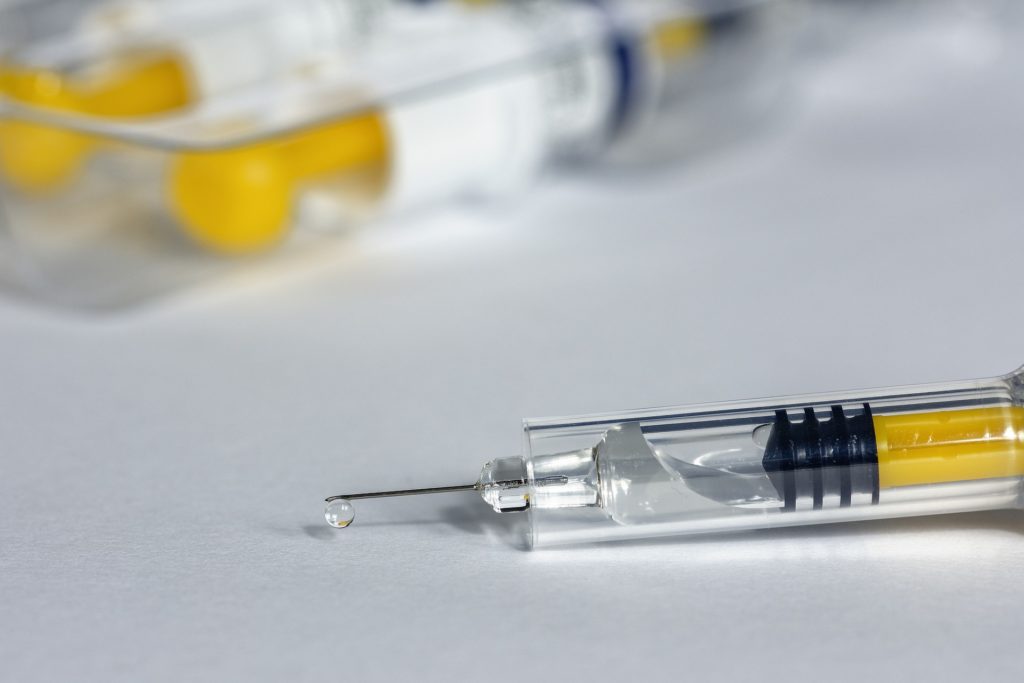Clinical trials for a COVID-19 vaccine will begin on Thursday this week. The vaccine has been developed by researchers at the University of Oxford in the UK and will be among the first to be tested against COVID-19 in humans. There are simultaneous plans to begin large-scale manufacturing of the vaccine in hopes that it is effective.
The announcement was made yesterday by the UK’s health secretary Matt Hancock during his daily briefing in which he said that, “in normal times, reaching this stage would take years. I’m very proud of the work taken so far.”
He also revealed that the UK government, “will invest in manufacturing capability so that if these vaccines safely work, then we will make it available for the British people as soon as humanly possible.”
The work was led by vaccinologist Dr. Sarah Gilbert at the Jenner Institute at Oxford. She told UK’s Sky News that the trial would include “up to 500 people” by the middle of May.
The trial is a randomized control trial consisting of healthy participants, half of whom will get the experimental vaccine while the other half will get a different vaccine. Dr. Gilbert said that, “we will be monitoring them asking them to contact us if they have any symptoms of coronavirus and then we will find out who is getting infected.”
Related: WHO Announces SOLIDARITY Megatrial to Test Treatments for COVID-19
The experimental vaccine is called “ChAdOx1 nCoV-19” and is a recombinant viral vector vaccine, which elicits a potent cytotoxic T cell immune response against virus-infected cells. The viral vector achieves this by inducing enhanced expression of viral antigens within cells. This particular vaccine was developed from a harmless chimpanzee virus that was engineered to contain parts of the SARS-Cov-2 virus that causes COVID-19.
While exhibiting significant efficacy, recombinant viral vectors present toxicity and safety concerns. Moreover, previous exposure to the vector or the virus itself may limit immunogenic responses due to the presence of neutralizing antibodies that may hinder the efficacy of the vaccine.
The vaccine is among approximately five vaccines for COVID-19 that have reached early stage clinical trials in humans. At present, there are over 70 different COVID-19 vaccines being developed by academic and biotech researchers around the world.
The fast-tracking of vaccines for COVID-19 into clinical trials is unprecedented in recent times as the process typically takes anywhere between six to 18 months. However, given the urgency of developing a vaccine to address the predicted waves of outbreaks over the next one to two years, government, health, academic and pharma agencies are working at an accelerated pace in attempts to meet the concerns.
With respect to an exact timeframe for a successful vaccine to be made available to the public in the UK, and subsequently around the world, a member of the Oxford group, Professor Andrew Pollard said, “if you had a sailing wind and absolutely nothing goes wrong in all of that complex technical process and you have all the facilities available, you could have millions of doses by the autumn of this year.”
The manufacturing of the vaccine is undergoing what is termed ‘at risk manufacturing,’ meaning that there is a risk that the production of millions of doses of the vaccine may go to waste if it is proven to be ineffective in trials.
In an online briefing, Adrian Hill, a professor and director of the Jenner Institute at Oxford told reporters that, “we have started at risk manufacturing of this vaccine not just on a smallish scale…but with a network of manufacturers in as many as seven different places around the world.”
This network of manufacturers includes three in Britain, two in Europe, one in India and one in China.
Hill is hopeful to “have at least a million doses by around about September, when we also hope to have efficacy [trial] results.”
According to the latest numbers from John Hopkins University, there are now over 2.5 million COVID-19 cases worldwide with over 179,000 deaths, with both numbers continuing to increase. This makes development of treatments and vaccines imperative in the coming months.












Join or login to leave a comment
JOIN LOGIN